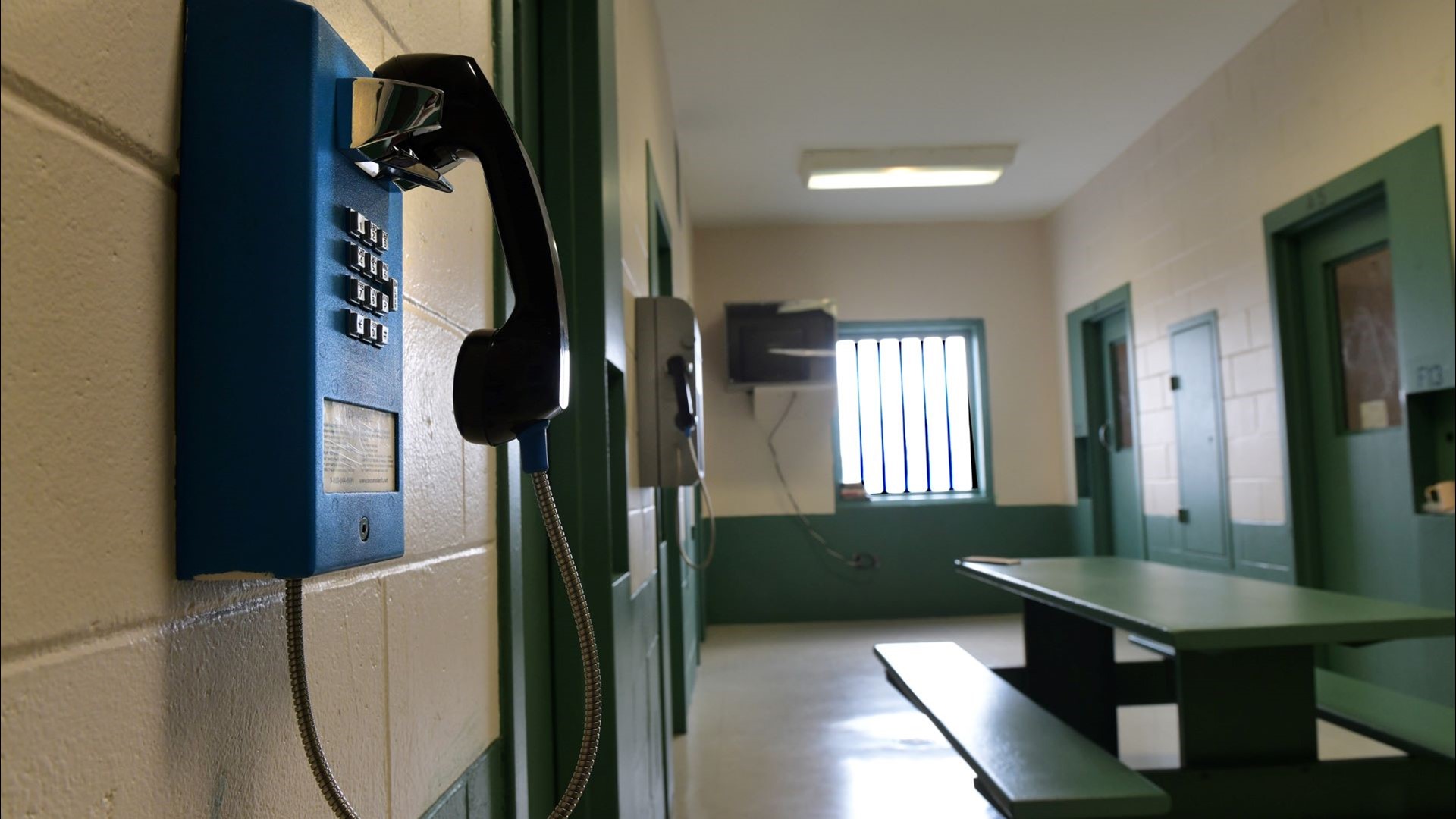MAINE, Maine — A legislative study group is recommending that Maine adopt stricter policies about recording and listening to the phone calls between defense lawyers and their clients in jail, after finding a patchwork of unwritten processes that often leave confidential calls at risk of being recorded.
The study group will urge lawmakers to require police and prosecutors write and adopt new rules to protect the confidentiality of calls and to ensure the defendants’ constitutional right to counsel is protected. The policies and procedures are intended to “ensure attorney-client communications are absolutely confidential,” according to the study group’s recommendations.
The Committee to Ensure Constitutionally Adequate Contact with Counsel voted on a set of six recommendations at its meeting Wednesday and will resume its deliberations on Nov. 1. Penalties if these rules were broken are expected to be discussed at the study group’s next meeting. And a report of all the recommendations will be sent to lawmakers to consider law changes next year.
Police departments and prosecutorial offices insist they are already taking steps to avoid listening to attorney-client conversations or to immediately stop listening if the contents may be privileged.
“It definitely needs to be more formalized,” Lisa Marchese, the deputy attorney general of the criminal division, said of the processes around ensuring attorney-client confidentiality.
The attorney general’s office doesn’t have a written policy on how prosecutors should respond to receiving potentially confidential recordings from the county jails. She has begun asking some prosecutors to note the date and time of a call if they are inadvertently provided a recording that may be between a lawyer and client, Marchese said. The plan is to adopt an office-wide policy, she said.
The specific recordings a Maine State Police detective heard was central to a request earlier this year to dismiss a homicide case that the attorney general’s office was prosecuting. The court denied the request. Bobby Nightingale was convicted of two murders at trial, but his lawyers are again asking the court to dismiss the case because an email between the detective and attorney general’s office about the confidential recordings may not have been turned over to them.
The study group was formed earlier this year in response to an investigation by The Maine Monitor that found about 1,000 phone calls between defense lawyers and their jailed clients were recorded within the span of a year. Dozens of those recordings were later shared and partially listened to by law enforcement or prosecutors — including some of Nightingale’s calls, the Monitor reported.
The study group found that less than half of Maine’s county jails provided forms to inmates to indicate their lawyer’s phone number so they could ensure their calls with lawyers were not being recorded.
There is also currently no simple procedure for a lawyer to block their phone number from being recorded at all 15 of Maine’s county jails. Lawyers instead have to provide their phone number to each individual jail where they have clients. Defense lawyers said the process varies at each jail.
The study group will also task members of the Board of Trustees at the Maine Criminal Justice Academy with updating the basic training curriculum to ensure law enforcement and corrections officers are taught that they cannot listen to private conversation between lawyers and their clients.
The group is also recommending that the Maine Department of Corrections and 16 county sheriff’s offices be expected to ensure there is space available for lawyers and jailed clients to have confidential meetings on a timely basis.
A survey by the courts found that the availability of conference rooms varies widely between each courthouse and jail. In buildings where there is a private space, there is not always adequate corrections staff to allow those spaces to be used by lawyers and prisoners.
Some jails no longer transport defendants to the courthouse for first court appearances and instead do the proceedings via video. This too presents confidentiality problems with guards and other prisoners within earshot.
Members were split, 6-4, on whether the jails will need to eventually provide space for inmates to securely store their confidential legal materials.
Five members of the study group were absent from Wednesday’s meeting. Missing members will have until 5 p.m. on Friday to record their votes. It is unlikely to substantially change any of the recommendations except potentially the question about storage space at the jails.
Co-chairs Sen. Anne Carney (D-Cape Elizabeth) and Rep. Thom Harnett (D-Gardiner) will ask legislative leadership for permission to hold one additional meeting on Nov. 1 to complete the group’s work.
This story was originally published by The Maine Monitor. The Maine Monitor is a local journalism product published by The Maine Center for Public Interest Reporting, a nonpartisan and nonprofit civic news organization.

